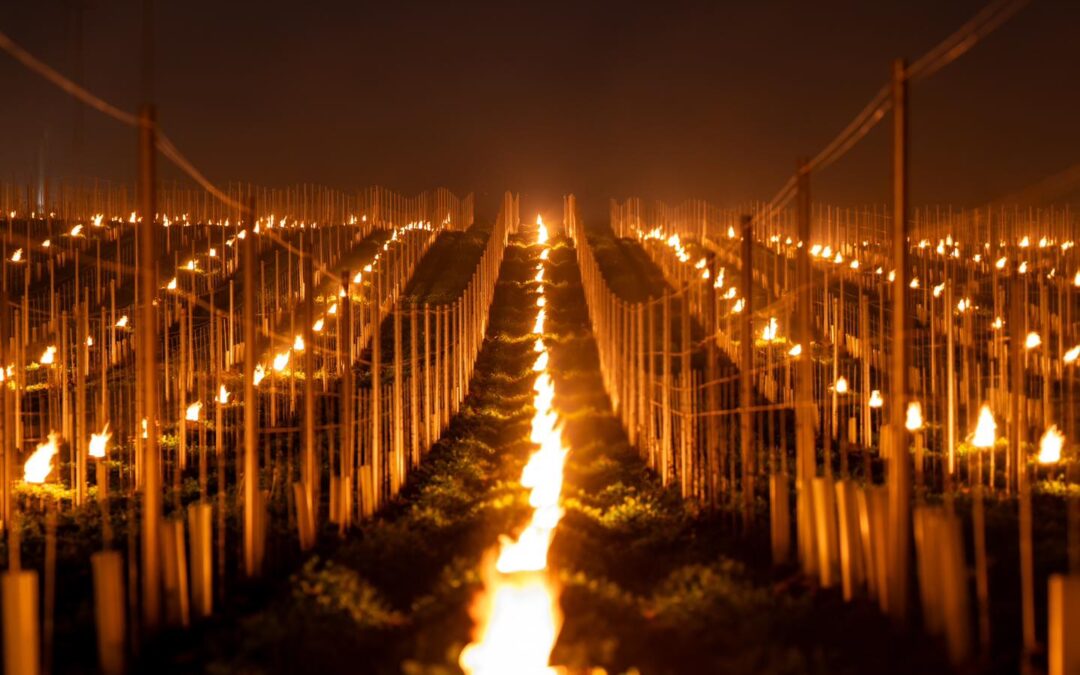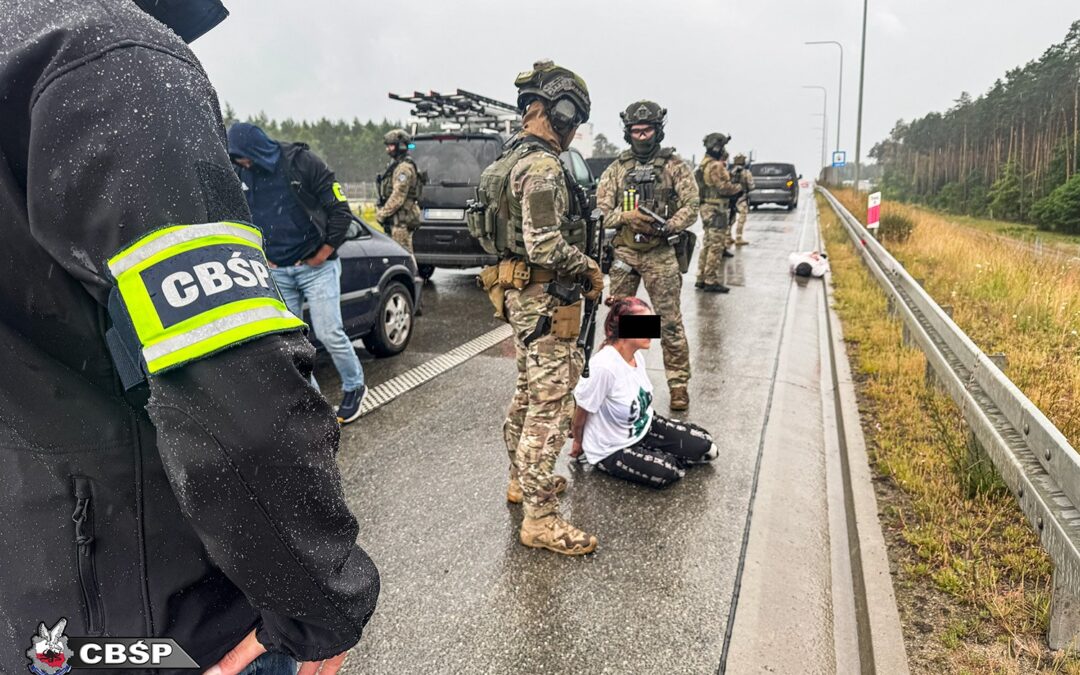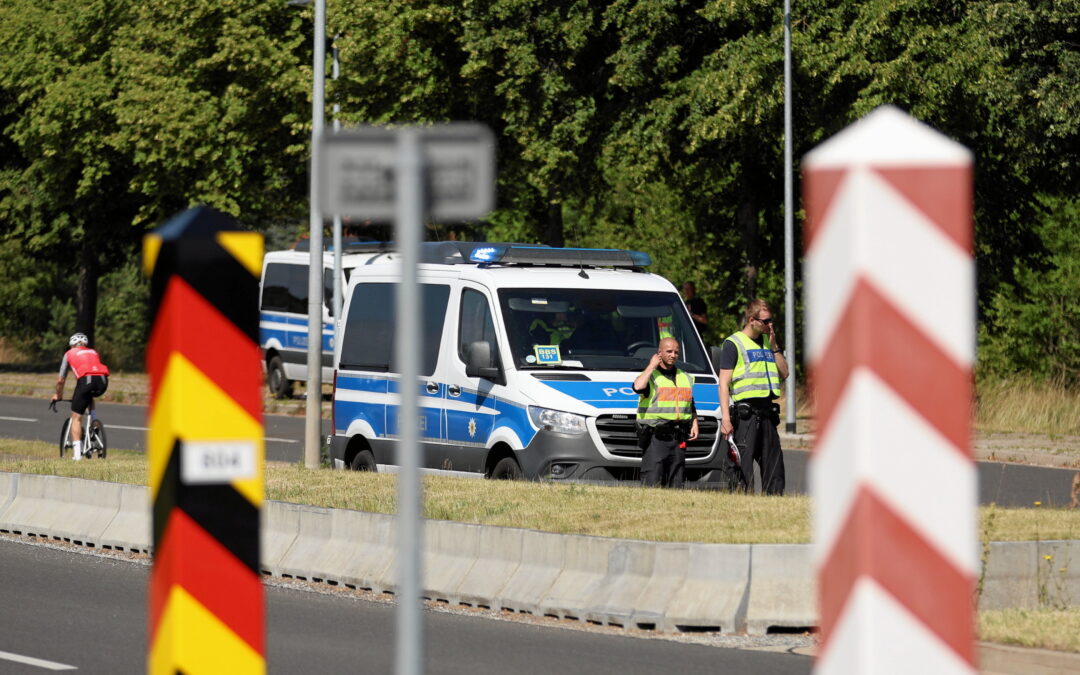Polish orchard and vineyard owners have been lighting bonfires in an effort to keep their crops warm amid a recent cold snap that followed unseasonably warm weather.
That earlier warm period – when temperatures in parts of Poland rose to above 25°C (77°F) – had prompted plants to bloom early, now leaving them vulnerable to the cold, with temperatures falling as low as -8°C (18°F). Young fruit flower buds can only withstand temperatures down to around -2°C.
Despite their efforts to keep the plants warm, some fruit growers are predicting that the damage caused by the current freeze could cause yields to fall as much as 70%. They have called the situation “dire” and warn that fruit prices will be higher this year.
The warm period in late March and early April saw temperatures regularly above 20°C (68°F). Some parts of Poland experienced the highest March temperatures on record. In the southern city of Tarnów, on 30 March the thermometer reached 26.4°C (79.5°F).
That stimulated the fruit trees to bud faster than usual. In recent weeks, however, temperatures have dropped again, falling below freezing at night.
According to Jarosław Głąb, a fruit grower in central Poland, as much as 60-70% of the flowers in his orchards, where he grows plum, apple, pear and cherry trees, have already failed to survive the frost.
“[The buds] simply won’t stay on the trees, everything will fall down,” he told local media outlet TVP Kielce. “You have to take care of the rest, you have to fight.”
According to broadcaster TVN, methods used by farmers include burning fires at night among the trees, sprinkling water on the crops so that a layer of ice forms on the flowers to insulate them against frost, and creating smoke by burning wet straw.
Some fruit growers also use helicopters to mix warm and cold air and increase the average temperature on the ground.
“If fruit growers have to choose between having any crop or no crop at all, then they will risk every financial resource they have in order to save their crop,” Izabela Kaczor, author of the Kobieta w Sadzie (Woman in the Orchard) blog, told TVN.
The west and south of Poland have been most affected by the frosts. According to Krzysztof Federowicz of the Miłosz vineyard in Łaz in western Poland, the situation is the worst it has been in 13 years.
“From what I hear from fellow fruit growers…it’s really bad,” Krzysztof Czarnecki, deputy president of the Polish Fruit Growers’ Association, told news website Wirtualna Polska.
“There will definitely not be a normal harvest. There will be less fruit, and that comes with higher prices. All the more so as we are hearing from [elsewhere in] Europe that there have also been frosts.”
Winegrowing, once widespread in Poland, is again part of the landscape after dying out amid a cooling climate and political upheaval.
Inka Wrońska of @fermentmag offers a guide to the growing industry and recommendations for the best vineyards and wineshttps://t.co/B2B75cncMH
— Notes from Poland 🇵🇱 (@notesfrompoland) November 19, 2021

Notes from Poland is run by a small editorial team and published by an independent, non-profit foundation that is funded through donations from our readers. We cannot do what we do without your support.
Main image credit: Winnica Turnau/Facebook

Alicja Ptak is senior editor at Notes from Poland and a multimedia journalist. She previously worked for Reuters.



















